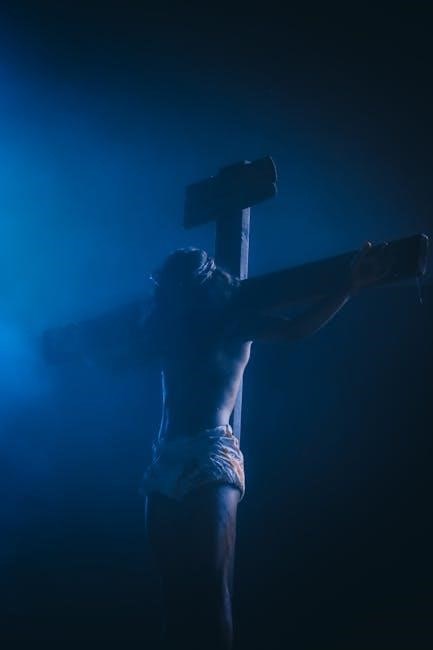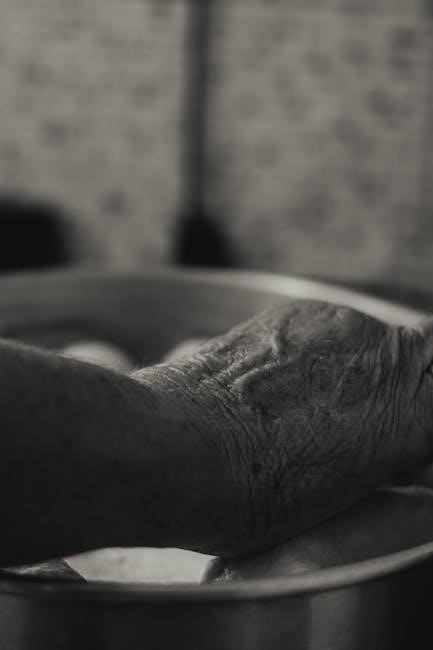“God of Carnage” is a dark comedy by Yasmina Reza, exploring the collapse of civility among two couples meeting to discuss their children’s altercation. Published in 2008, it delves into human nature’s complexities through sharp dialogue and intense character interactions, set in a bourgeois living room, revealing the fragility of adult relationships.
1.1 Overview of the Play
God of Carnage, written by Yasmina Reza, is a dark comedy that explores the disintegration of civility among two couples meeting to discuss a playground altercation between their children. Set in a bourgeois living room, the play reveals the fragility of adult relationships through sharp dialogue and escalating tensions. Originally titled Le Dieu du Carnage, it was translated by Christopher Hampton and first performed in 2006. The play’s concise structure and intense character dynamics have made it a global theatrical success.
1.2 Author and Background
Yasmina Reza is a renowned French playwright and novelist, known for her sharp wit and insightful exploration of human nature. Born in Paris, she has written several award-winning plays, including Art and Life x 3. God of Carnage, originally titled Le Dieu du Carnage, was translated into English by Christopher Hampton and premiered in 2006. Reza’s works are celebrated for their psychological depth and universal appeal, making her one of the most respected voices in contemporary theatre.

Plot Summary
God of Carnage revolves around two sets of parents meeting to discuss a fight between their children, beginning with civility that gradually unravels, revealing their true, less-than-perfect selves.
2.1 The Central Incident
The play begins with a playground altercation between two 11-year-old boys, Ferdinand Reille and Bruno Vallon. Ferdinand loses two teeth in the incident, sparking tension between their parents, who meet to discuss the matter. This event sets the stage for the unfolding drama, revealing the underlying conflicts and true nature of the adults involved. The incident acts as a catalyst, exposing the fragility of their civilized facade and leading to a series of intense, revealing interactions.
2.2 Character Interactions and Conflicts
The meeting between the Raleighs and the Novaks begins with forced politeness but quickly escalates into chaos. Tensions rise as their civilized facades crumble, revealing underlying flaws. The couples’ interactions are laced with passive-aggressive remarks, personal attacks, and emotional outbursts. The dynamics between Alan and Annette, as well as Michael and Veronica, unravel, exposing their true selves. The play’s dark comedy emerges from the rapid breakdown of civility, highlighting the raw, often childish behavior of the adults as they confront their differences and insecurities.
Themes and Symbolism
God of Carnage explores themes of human nature, civility, and societal masks. The play uses a bourgeois living room and symbolic elements like tulips to represent the facade of refinement, highlighting the fragility of relationships and the destructive power of unchecked emotions.
3.1 The Fragility of Human Relationships
The play vividly portrays the breakdown of civility, revealing how quickly adult relationships can unravel. Through sharp dialogue and escalating tensions, Reza exposes the superficiality of polite interactions, showcasing how underlying insecurities and prejudices emerge. The meeting of two couples, initially cordial, descends into chaos, highlighting the fragile nature of human connections and the ease with which they can fracture under pressure.
3.2 The Destructive Nature of Civility
The play critiques the facade of civility, revealing how it often masks true emotions and hinders genuine resolution. The polished demeanor of the characters crumbles, exposing their primal selves. Civility becomes a tool of manipulation, preventing honest communication and fueling conflict. Reza illustrates how forced politeness can escalate tensions, highlighting the destructive potential of maintaining social niceties over addressing real issues, ultimately leading to chaos and the unraveling of decorum.
3.4 The Role of Social Class
Social class subtly shapes the characters’ behaviors and interactions in “God of Carnage.” The bourgeois setting, with its art books and tulips, reflects the characters’ middle-class aspirations. Their polished demeanor and attempts to maintain refinement highlight their awareness of social expectations. However, as tensions rise, their true selves emerge, exposing insecurities and prejudices rooted in their social status. The play critiques how class influences civility, revealing that even the well-educated and affluent can descend into chaos, underscoring the superficiality of social hierarchies.

Characters Analysis
The play revolves around four characters—Alan, Annette, Michael, and Veronica—each embodying various aspects of middle-class life. Their interactions reveal underlying tensions and societal expectations.
4.1 Alan Raleigh
Alan Raleigh, a self-assured lawyer, initially presents himself as rational and composed. His character, however, gradually unravels, revealing a man clinging to control and civility. As tensions rise, his polished demeanor cracks, exposing insecurities and a tendency to shift blame. Through his interactions, Reza critiques the facade of sophistication, highlighting how societal expectations mask true emotions. Alan’s transformation from composed to unrestrained underscores the play’s exploration of human fragility and the collapse of civility under pressure. His character serves as a mirror to societal norms and the struggle to maintain composure.
4;2 Annette Raleigh
Annette Raleigh, Alan’s wife, appears as an elegant, composed woman who embodies societal expectations of refinement. However, her polite facade conceals suppressed emotions and a growing sense of resentment. As the play progresses, her controlled demeanor crumbles, revealing her frustration with her marriage and societal norms. Annette’s character highlights the tension between outward civility and inner turmoil, showcasing the suffocating effects of maintaining appearances. Her emotional unraveling serves as a stark reminder of the fragility beneath polished exteriors.
4.3 Michael Novak
Michael Novak, Veronica’s husband, is a man of straightforward, no-nonsense demeanor, often contrasting with the tension in the room. His pragmatic approach to the situation initially presents him as the voice of reason, yet his dry wit and occasional sarcasm hint at underlying frustrations. As the meeting progresses, Michael’s composure cracks, revealing a more volatile side. His interactions with Alan highlight their differing personalities, while his relationship with Veronica exposes simmering marital tensions, showcasing how civility thinly veils raw human emotions.

4.4 Veronica Novak
Veronica Novak, a cultured and refined woman, initially presents herself as calm and composed. As the meeting progresses, her polite facade crumbles, revealing a more volatile and emotionally charged personality. Her interactions with Annette and Alan expose underlying tensions, while her relationship with Michael highlights a marriage strained by unspoken resentments. Veronica’s character serves as a mirror to the societal expectations of motherhood and civility, blending humor with deeper emotional complexity to illustrate the cracks in her seemingly perfect life.
PDF Availability and Access
The God of Carnage play is widely available in PDF format on platforms like Scribd, Google Books, and Dramatists Play Service. It can be downloaded for free or purchased as an e-book in PDF, EPUB, or Kindle formats, ensuring easy access for readers worldwide.
5.1 Where to Find the PDF
The God of Carnage PDF is available on platforms like Scribd, Dramatists Play Service, and Google Books. It can be downloaded for free or purchased as an e-book in PDF, EPUB, or Kindle formats. Users can also access it through academic databases or theatre resource websites, ensuring easy accessibility for readers and theatre enthusiasts worldwide.
5.2 Format and Compatibility
The God of Carnage PDF is available in multiple formats, including PDF, EPUB, and Kindle, ensuring compatibility with various devices like e-readers, tablets, and smartphones. The PDF version is particularly popular for its readability on both desktop and mobile platforms. Its concise 52-page length makes it easily downloadable and accessible, catering to a wide range of readers and theatre enthusiasts seeking a digital copy of the play.
Reception and Awards
God of Carnage received widespread critical acclaim and won numerous awards, including Tony and Olivier Awards, solidifying its reputation as a masterful exploration of human behavior and civility.
6.1 Critical Acclaim
God of Carnage garnered widespread critical acclaim for its sharp wit, masterful dialogue, and unflinching portrayal of human nature. Reviewers praised its darkly comedic take on civility’s collapse, with many highlighting its universal appeal. The play’s ability to expose the raw emotions beneath polished facades resonated deeply with audiences, earning it a reputation as a bold and thought-provoking work of contemporary theatre. Its success was further cemented by its Tony and Olivier Awards, solidifying its place in modern drama.
6.2 Tony and Olivier Awards
God of Carnage won the Tony Award for Best Play in 2009 and the Olivier Award for Best New Comedy in 2008. These prestigious accolades highlighted its global acclaim and impact on contemporary theatre. The play’s success in both London’s West End and New York’s Broadway underscored its universal appeal, with critics and audiences praising its sharp dialogue and provocative themes. These awards solidified Yasmina Reza’s reputation as a master of dark comedy and nuanced character exploration.
Cultural Impact
God of Carnage has left a lasting impact on global theatre, inspiring adaptations like Roman Polanski’s film “Carnage” and translations into multiple languages, including Arabic, showcasing its universal relevance.
7.1 Adaptations and Translations
God of Carnage has been widely adapted and translated, including a film version by Roman Polanski titled “Carnage” (2011), featuring Jodie Foster and Kate Winslet. The play has also been translated into Arabic, marking its debut in Lebanon, and remains popular in numerous languages, showcasing its universal appeal. Its dark humor and relatable themes continue to resonate globally, solidifying its place in contemporary theatre and beyond.
7.2 Influence on Contemporary Theatre
God of Carnage has significantly influenced contemporary theatre with its sharp wit and unflinching exploration of human nature. Its success as a dark comedy has inspired many playwrights to embrace edgy, realistic dialogue. The play’s ability to blend humor with profound societal commentary has set a benchmark for modern theatre, encouraging bold storytelling and nuanced character development. Its critical acclaim and awards have further cemented its impact, making it a cornerstone of 21st-century drama.
God of Carnage masterfully explores the disintegration of civility, revealing the raw truths beneath polished facades through biting dialogue and intense character dynamics.
8.1 Key Takeaways
God of Carnage offers a searing exploration of human nature, revealing how societal expectations mask primal instincts. The play highlights the tension between civility and raw emotion, showcasing how quickly polished facades crumble under stress. Through the dynamics of two couples, it exposes the fragility of relationships and the hypocrisy inherent in modern societal norms. Ultimately, the play serves as a darkly comedic commentary on the superficiality of adult interactions, leaving audiences reflecting on the duality of human behavior.
8.2 Historical Context
Written by Yasmina Reza in 2006, God of Carnage reflects the societal tensions of the mid-2000s, addressing themes of civility and primal instincts. The play, originally in French as Le Dieu du Carnage, premiered in Zurich and later in Paris, resonating with audiences amid a backdrop of global political and cultural shifts. Its exploration of human behavior under stress spoke to universal concerns about societal expectations and interpersonal dynamics, making it a timeless commentary on modern life.



